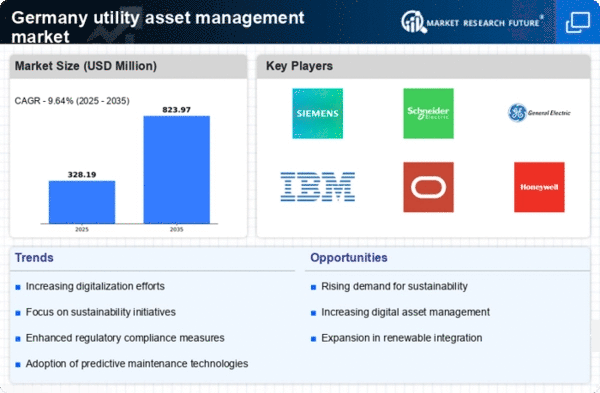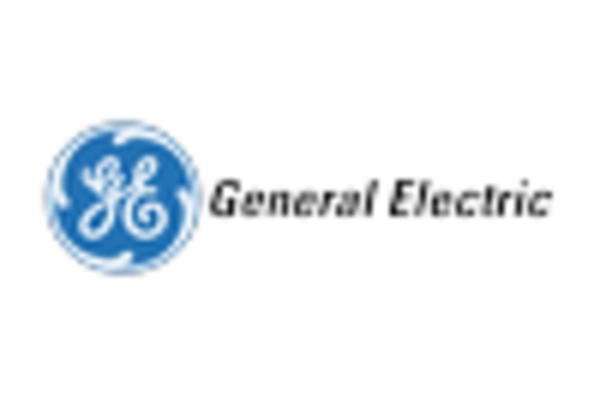Aging Infrastructure
Germany's aging utility infrastructure presents both challenges and opportunities within the utility asset-management market. Many assets are reaching the end of their operational life, necessitating significant investment in upgrades and replacements. The German government estimates that over €100 billion will be required to modernize the existing infrastructure over the next decade. This situation compels utilities to adopt more sophisticated asset-management strategies to prioritize investments and extend asset lifecycles. Consequently, the demand for advanced asset-management solutions is expected to rise as utilities seek to address these pressing infrastructure needs.
Technological Advancements
Rapid technological advancements are reshaping the utility asset-management market in Germany. The integration of IoT, AI, and big data analytics into asset management systems is becoming increasingly prevalent. These technologies enable utilities to optimize their operations, reduce maintenance costs, and enhance service delivery. For instance, predictive maintenance powered by AI can reduce downtime by up to 30%, significantly improving operational efficiency. As utilities strive to remain competitive, the adoption of these technologies is likely to accelerate, contributing to the overall growth of the market.
Regulatory Compliance Pressure
The utility asset-management market in Germany is currently influenced by stringent regulatory frameworks aimed at enhancing operational efficiency and environmental sustainability. The German government has implemented various regulations that mandate utilities to adopt advanced asset-management practices. Compliance with these regulations is not merely a legal obligation but also a strategic necessity for utilities to maintain their licenses to operate. As of 2025, it is estimated that utilities face compliance costs amounting to approximately €1 billion annually. This pressure drives investments in innovative asset-management solutions, thereby fostering growth in the market.
Consumer Demand for Transparency
In the utility asset-management market, there is a growing consumer demand for transparency and accountability. German consumers are increasingly aware of their energy consumption and its environmental impact. This awareness drives utilities to adopt more transparent asset-management practices, including real-time data sharing and performance reporting. As of 2025, surveys indicate that over 70% of consumers prefer utilities that provide clear information about their asset management and sustainability efforts. This trend compels utilities to enhance their engagement strategies, thereby influencing the overall dynamics of the market.
Increased Demand for Renewable Energy
The transition towards renewable energy sources is a critical driver in the utility asset-management market in Germany. As the country aims to achieve its ambitious climate goals, utilities are increasingly integrating renewable energy into their portfolios. This shift necessitates the implementation of advanced asset-management practices to effectively manage the variability and intermittency associated with renewable sources. It is projected that by 2030, renewable energy could account for over 65% of Germany's energy mix. This transition not only influences operational strategies but also drives investments in innovative asset-management technologies.
















